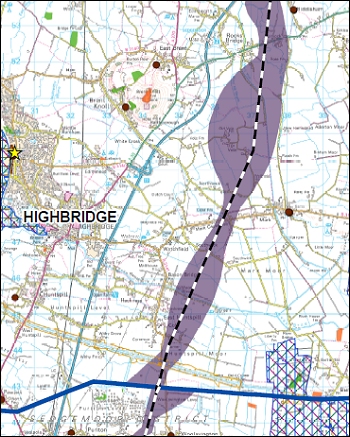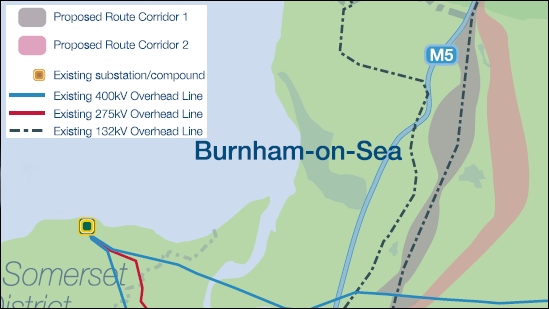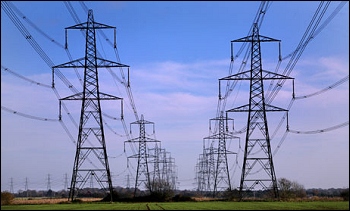The route of a controversial power line through Somerset has been announced by energy bosses today (Thursday, September 29th).
During a meeting with councillors in Bridgwater this morning, National Grid revealed its preferred route corridor for a 400,000 volt line between Hinkley Point and Avonmouth.
For the majority of the route, National Grid will use Corridor 1 which runs close to the Burnham area, as shown on the map below. The existing power line will be replaced with a new 400,000 volt line between Bridgwater and Avonmouth.
While National Grid says the cost of burying all the cables underground – which is favoured by campaigners – is “prohibitively high”, it has conceded that some parts of the line will be buried in sensitive areas along the route.
Having announced the preferred route corridor, National Grid says it will continue to work with residents affected along the route to carry out environmental surveys and to consider where undergrounding or other mitigating measures, such as tree planting and landscaping, may be possible.
 National Grid’s senior project manager, Peter Bryant, addde: “The views of the public continue to be important to us. We are grateful to all those who responded during the first stage of our consultation and have carefully considered the issues they raised. These have been important in helping us make our decision.”
National Grid’s senior project manager, Peter Bryant, addde: “The views of the public continue to be important to us. We are grateful to all those who responded during the first stage of our consultation and have carefully considered the issues they raised. These have been important in helping us make our decision.”
Campaigner Paul Hipwell, Chairman of the No Moor Pylons group, said news that some of the route will be underground is a “step forward.”
But he told Burnham-On-Sea.com: “National Grid has missed an opportunity today to take the lead and do what everyone, in their heart, knows is right.”
“No pylon route is acceptable to the people of Somerset. National Grid should recognise that pylons are outdated and obsolete technology. They should be taking the lead and putting all of the route underground to protect our beautiful countryside and people’s health.”
And Burnham’s MP, Tessa Munt, told Burnham-On-Sea.com: “I am flabbergasted that this announcement can go ahead when there are still so many questions unanswered. It would only add £1 per year to our electricity bills to underground this route. Surely this is a small price to pay to preserve our beautiful countryside and our precious tourism industry?”
Sedgemoor District Council told Burnham-On-Sea.com it recognises the need for electricity transmission and has agreed to work with National Grid as it prepares its proposals for examination by the Infrastructure Planning Commission in order to assist it in arriving at solutions that balance the national requirement with the need to protect the amenities of local communities.
Council Leader Duncan McGinty added: “We are anxious that these proposals consider all the options and information fully and will be urging National Grid to take full account of the findings of the independent report into the costs of alternatives to overhead lines when this is published at the end of the year.”

Pictured: The proposed route corridors for the power line – Corridor 1 has been chosen as the preferred route







